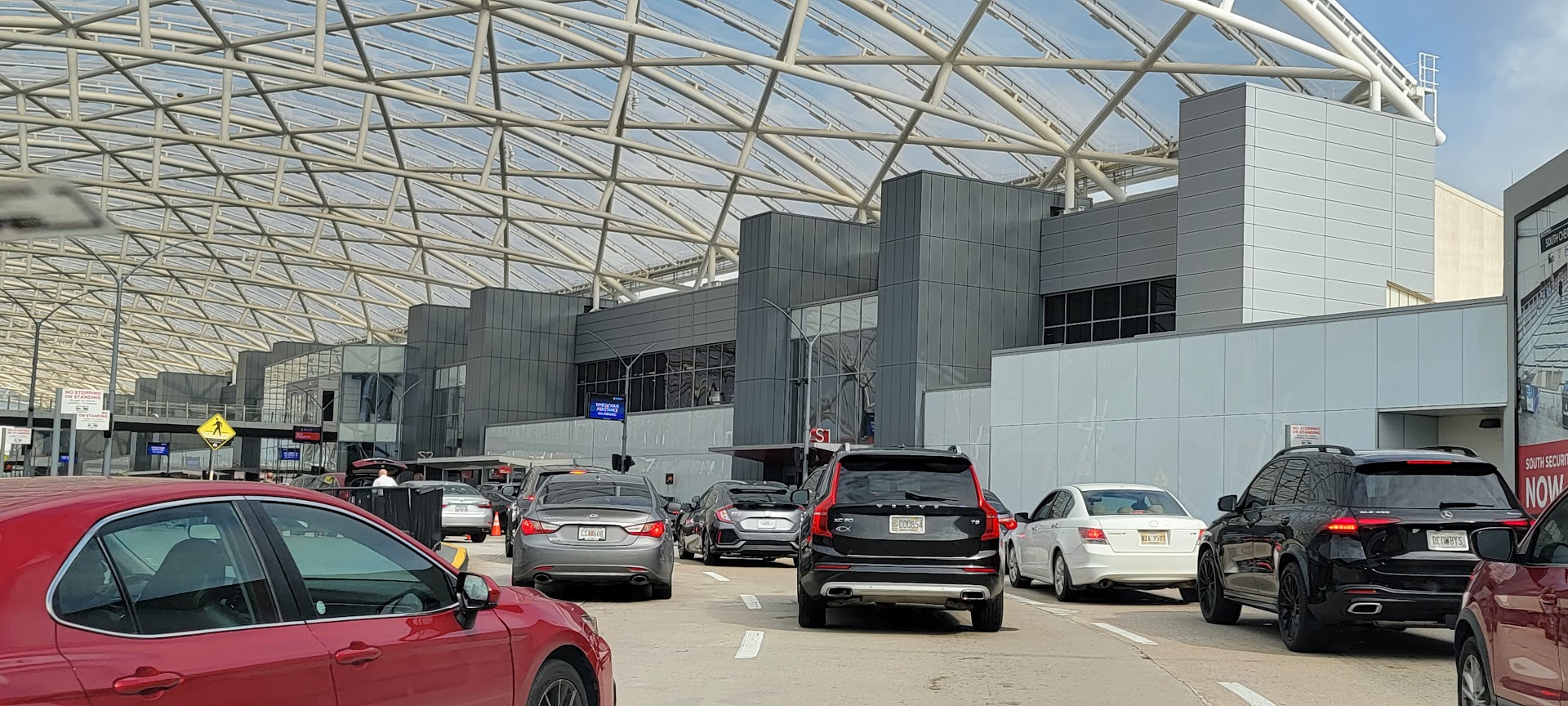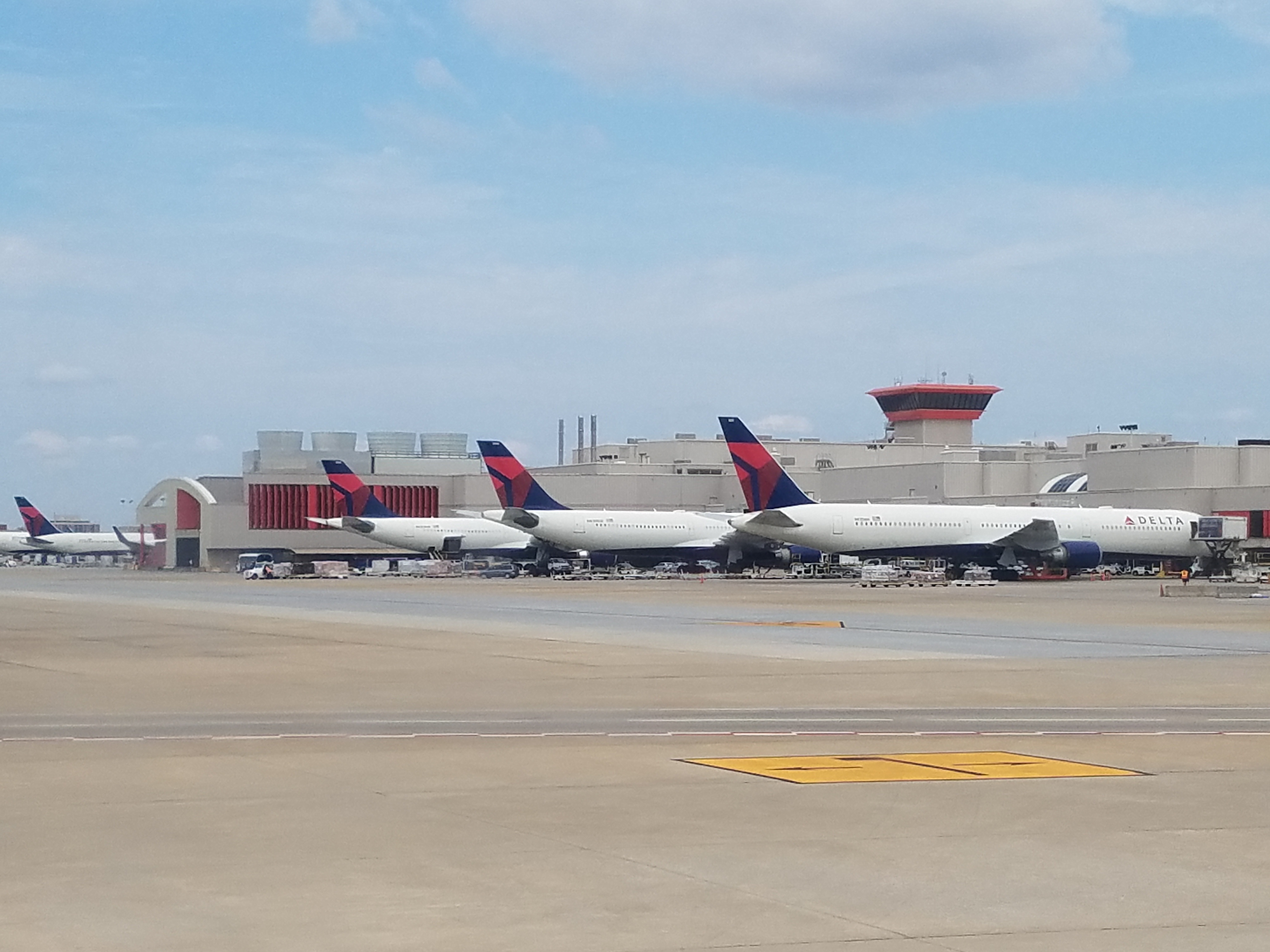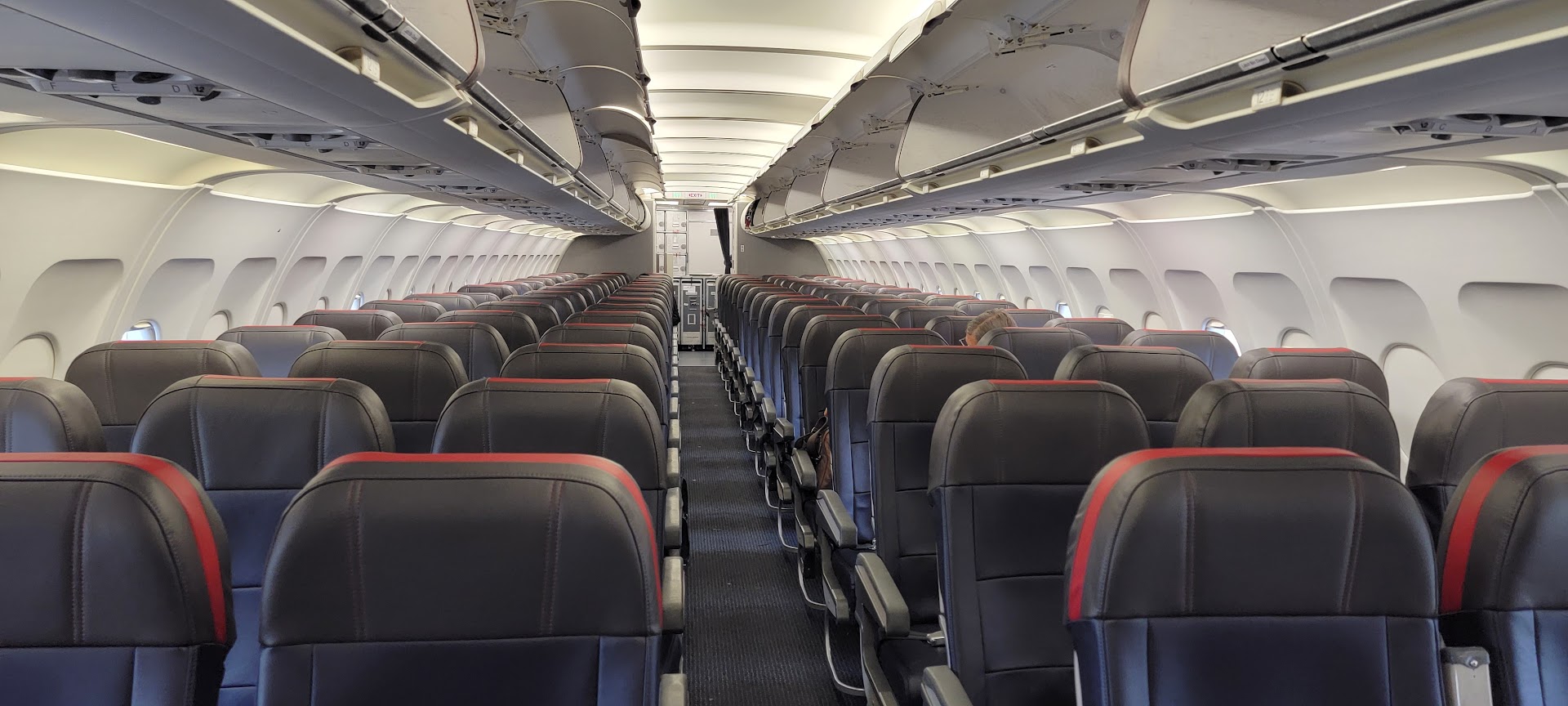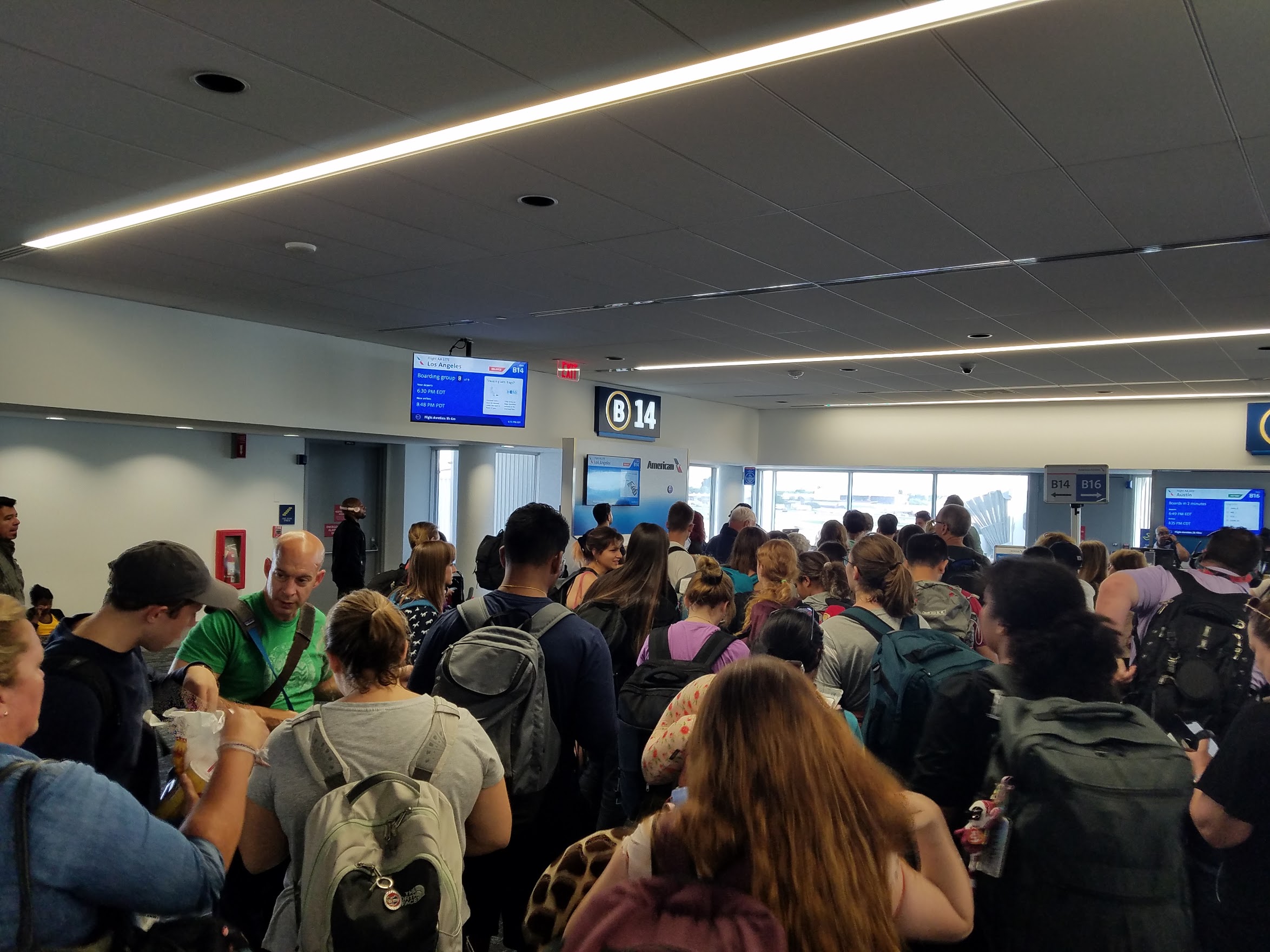The best airline hubs have substantial local traffic – people who are flying to and from that city. Historically that’s meant the highest fares, and then airlines fill out the planes with connections.
The advent of ultra low cost carriers has changed this calculation somewhat. They fly between cities where people want to travel non-stop, and at low fares. They aren’t going into the smallest markets, and certainly not flying from small market to small market. Due to lack of low fare competition, connecting traffic can sometimes be more lucrative than non-stop flights.
For those connections, major airlines compete on schedule and price (and to some extent quality and reliability, at the margin) without competition from lower cost airlines driving down fares.
While in major cities where a single airline dominates the hub, they compete with schedule frequency and they compete with their loyalty program (and to some extent, corporate discount deals). They probably offer several flights a day in major markets, so customers placing a premium on their time likely choose the major airline over a discounter with just one or two flights. And serving the needs of their customers wherever they want to fly, and treating those frequent customers better, creates brand loyalty even with a low fare carrier may offer a better price on a given trip.
Thus, the best hubs locations aren’t where they used to be. St. Louis might even work as a (connecting) hub today even though one of the major reasons that TWA failed, along with legacy labor work rules that gave them higher costs despite paying lower wages than competitors, was that St. Louis simply had fewer lucrative non-stop customers 25 years ago than it did in its glory years.
Atlanta has always been a connecting hub, with Delta known for decades as “Diverts Errant Luggage To Atlanta” and a saying that goes, “whether you’re going to heaven or hell, you’ve got to connect in Atlanta.” Now, though, it’s probably the best connecting hub from a financial standpoint.


If central location was most important for a hub Minneapolis would matter more for Atlanta. In fact, North Platte, Nebraska would be an ideally located hub instead of offering only United Express service to Denver. Omaha, Kansas City (once a US Airways focus city) or Wichita would be major hubs!
Among large airports, though, the ones driving the most connections are:
- Charlotte with 68% of passengers connecting
- Atlanta with 61% of passengers connecting
- Dallas – Fort Worth with 54% of passengers connecting
Charlotte and Atlanta make a lot of sense, even though they’re not in the middle of the country. They are between the places that people live and want to go, North-South connecting gateways, and scooping up traffic from across the Southeast where there aren’t other connecting hubs besides Miami.
Meanwhile it’s no accident that Charlotte and Dallas are both in the top three for connections. American Airlines has become a primarily domestic airline, relying on partners for much of its international connectivity. They’re specializing in getting people from one small town to another in the U.S. and have shied away from competing with other airlines in major cities on non-stop routes.

Charlotte in particular hits above its weight for connections given its geography and its low operating costs.
To be clear, in each case the dominant airline in these hubs actually has a higher percentage of connections than what’s reported here. That is because other airlines have fewer connections. American Airlines isn’t connecting very many people through Atlanta. They serve Atlanta when they bring passengers to and from that city, driving down the percentage. American Airlines connecting traffic in Charlotte is greater than 68%. There aren’t that many people that want to go to Charlotte relative to the size of the airport and the flights serving the city.
People often complain that Charlotte non-stop airfares are high, since so many routes lack competition. But Charlotte has the blessing of outsized air service that they couldn’t replicate without operating as American’s low cost hub in the Southeast.

A similar idea is Denver, where 42% of passengers connect overall – but 55% of United passengers are connecting. If you’re flying someone other than United or Southwest to Denver, you’re probably going to or originating in Denver.
Boston and Orlando only have 6% of passengers connecting. You might pick up an international flight out of Boston, though usually connecting traffic in the Northeast might go to New York. Connections may also bring you through Boston to places like Martha’s Vineyard. If you’re flying to Orlando it’s because you want to go to Orlando. Mickey’s there.
I can think of only one time where I connected in Orlando. It was post-9/11, when Washington National airport was still shut down, and there was limited capacity into Washington Dulles. I had to fly through Orlando to get back to DC from Miami.


Was flying from DC to London last year.
Connected in Atlanta off an AA flight to BA. Weirdest connection I’ve ever had.
@HT- why didn’t you just fly nonstop from dc to London?
Gary- Aa competed on busy routes with other airlines. Ever heard of jfk-lax or jfk-sfo? Chicago- anywhere? They compete with UA on most routes.
Would rather chew my own body parts off than ever step foot in Charlotte Airport again.
CLT proves costs do matter in commercial aviation.
SLC has tons of connecting traffic by the the dominant carrier.
Charlotte is in the SouthEast Gary. Not SouthWest.
Gary, you and the readers should know a HARD fact about TWA and the reason it was purchased by AA. The MAJOR reasons that TWA fazed out was not exactly the St. Louis hub or work rules of its labor.
CARL ICHAN would be one of the major reasons….OK, St. Louis might not have been a perfect place but i don’t think it was a major contributing factor. Flight 800 and the cover up on that put the hurt on them as well, blame our govt. on that one.
Reasearch Carl Icahn and TWA and the Caribou ticket scheme.
What exactly is being redefined in Atlanta, which has been a major hub for a few decades and the airport with the most passengers in the world for many of these years? The title promised something that the article doesn’t deliver.
What about Chicago? More people connect at O’Hare than in Charlotte. It’s no surprise that in addition to connections, there’s quite a few passengers going to/from Chicago, while there’s a comparative trickle of local passengers in Charlotte.
What’s the point of this article?
@Jake. Good point. I didn’t see a point in this article/ didn’t learn anything new.
@B Whitehead – the Caribou ticketing agreement was highly extractive but that wasn’t TWA’s fundamental problem.
Even as a Delta flyer, I really concentrate on never touching foot in Atlanta unless I am going to Atlanta (and even then, flying American is often better!). Atlanta is one of the worst airports in the system to connect through at a Delta flyer, mainly because it is the most crowded and has the lowest quality clubs. I connect through Atlanta once a year, often during IRROPs. Otherwise I am flying from the NYC area over Atlanta the vast majority of the time. I think I have connected at LAX more often than I have connected in Atlanta the past few years.
CLT airport is a shithole. No on site hotels. No rail or reliable public transportation. Terrible parking situation. Escalators, Elevators and Baggage Claim belts are constantly out of service. Carpets are threadbare and overall airport conditions are dirty and disgusting. To top it all off food there is bad. Centurion Lounge although crowded is only saving grace of that airport. It is one of the worst in nation
CLT is a nightmare to connect at – especially to/from Mainline – Commuter on AA. Crappy and overcrowded gate areas; long distances to connecting gates; out of service people movers and dumpy Admirals Clubs. The only place worse in the AA system is PHL.
Atlanta doesn’t bother me. Once you know how to navigate it, it’s okay. CLT on the other hand, I do everything in my power to avoid CLT. Like many have mentioned, it’s a dump. As @TW mentioned, the only place I would consider worse than CLT and PHL.
Back in the late 1980s, our family connected in MCO while traveling from RSW to LGA on Delta. A 737-200 to MCO and a 757 to LGA. Filet mignon was served for dinner in economy class. I was annoyed because the identical dinner was served the week prior from LGA to ATL. How times have changed!
I used to connect through CLT every week. But in the last few years it has become grossly overcrowded. The AA clubs are a mess, no where to site, terrible food options. With one-way traffic out to the commuter E-Terminal, flights are typically delayed. CLT is just a cattle car mess. I have switched to DFW and ORD. Way better!
Great comment, Ryan — those were the days! I’ll add that back in those days, Atlanta was a big hub for Eastern Airlines as well as Delta. In the late 70s my new wife and I bought a 3-week Eastern Airlines fly-as-much-as-you-want in three weeks ticket and passed through Atlanta a lot.
Does CLT still have bathroom attendants? I started avoiding that airport a few years ago. It was awkward and disgusting.
Charlotte airport is the ghetto. What a pathetic excuse for a hub.